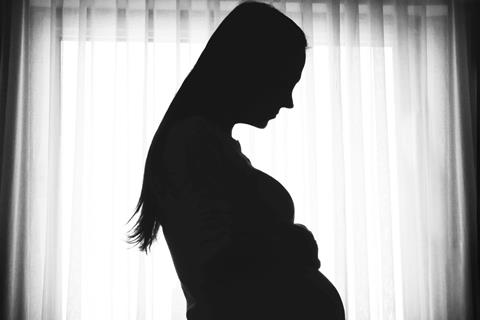
When our own children are healthy, it can be difficult to fathom the emotional and physical toll of carrying and nurturing a child with serious health challenges. That was true for Beth Appleby too, until she became pregnant with her third child.
Appleby’s book Carrying Hope (Instant Apostle) is a deeply moving and powerful story of one mother’s journey – bracing herself for the likely loss of her baby, while holding onto the hope that God might still grant the gift of life.
Appleby leads us through her pregnancy as she discovers at 20 weeks that her baby has a genetic condition known as Edwards’ Syndrome or Trisomy 18. Babies with this diagnosis typically have a very short life expectancy, and those born alive often face complex medical challenges, with survival usually measured in days or weeks.
As a committed Christian, Appleby, like any human, wrestles with the realities of suffering both in her own journey with her husband and as a companion to others navigating the grief of losing a child to genetic disorders. Nevertheless, as the reality of having a child with Trisomy 18 unfolds before her and as they move closer to facing its full force, Appleby finds solace in the scriptures, most notably, the Psalms – which give voice to her laments while also directing her worship toward a good and loving God. She draws on the stories of David, Hannah, Sarai and Jesus’ life and death, and clings to timely words from the Spirit which comfort and sustain her. This is a touching exploration of both pain and hope. At times, it is heart-wrenching; potentially overwhelming for readers who find it resonates with them.
In essence, Appleby pulls back the curtain on a world many of us never knew existed, shedding light on the often-unseen roles, professions, and services that provide vital knowledge and support. At the same time, she gently teaches us how to offer genuine compassion to those whose pain we may not fully grasp, having never walked that path. The way others respond in such moments leaves a lasting imprint on a person’s heart. Reading her experiences certainly made me reflect on my own shortcomings in showing Christ-like compassion, realising how easily I’ve defaulted to offering clichéd responses rather than heartfelt care. Gaining insight into what comforted and strengthened Appleby during this season was both humbling and enlightening.
Appleby has been incredibly courageous in sharing so openly about such a painful chapter of her life. With honesty and vulnerability, she offers this account as a powerful testimony to God’s goodness amid suffering, while also aiming to inform others about the complexity of genetic conditions and the decisions surrounding them. She also confronts the assumptions about which lives are deemed worthy of value and dignity in the context of care. It is clear that this book has been part of the author’s journey toward healing, helping her to process and reflect on the valley of the shadow of death that her family endured.
As heartbreaking a read as it is, I found myself compelled to keep going, eager to discover what would happen next, and I confess to shedding tears at various points. Yet, there was beauty to be found in the brokenness, what was evident is that Appleby and her family were carried and held by their community – a beautiful illustration of what the Church is called to be.
Having been written with grace and sensitivity, this book will prove to be an invaluable resource for expectant parents grappling with a difficult diagnosis, for church communities seeking to offer meaningful pastoral care to families in crisis, and, hopefully, for those in the medical profession as well. As the author of the foreword points out: “as a seasoned traveller in previously unchartered and perilous territory, Appleby is now a wise and trustworthy guide, ultimately pointing us towards the God of all hope.” I have no doubt her wisdom will be a blessing to many.
Carrying Hope by Beth Appleby is out now.

